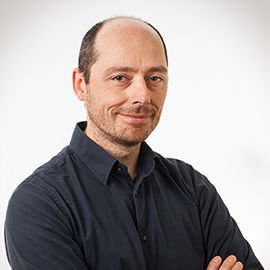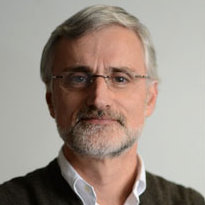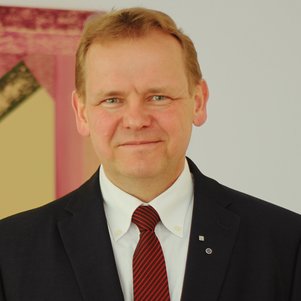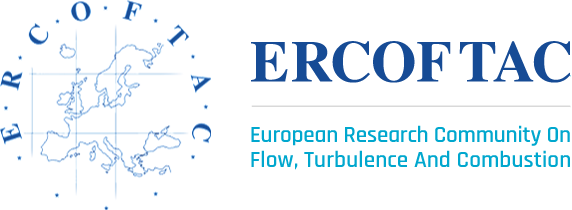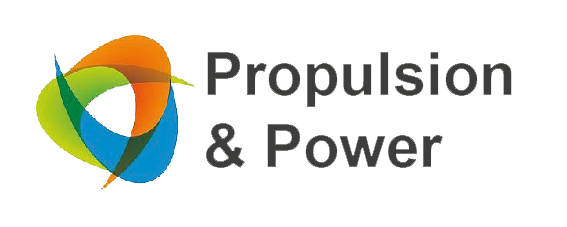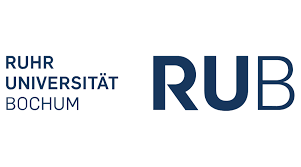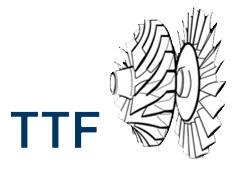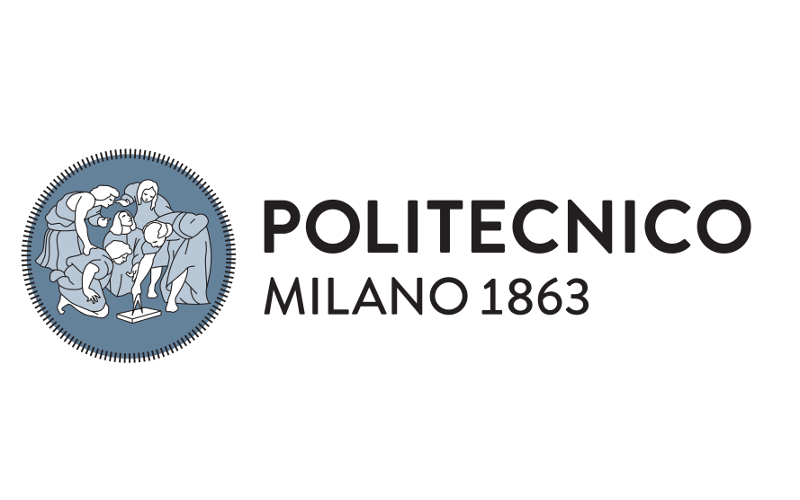Keynote Speakers
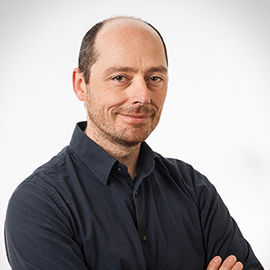
Dr. Rene Pecnik
TU Delft, The Netherlands
Keynote abstract - Turbulence in flows characterized by strong thermo-physical property gradients:Turbulent flows with strong heat transfer are common in nature and engineering applications. In general, heat transfer is accompanied with strong temperature gradients and consequently gradients in thermophysical properties. How these gradients affect turbulence has been subject to research for several decades. This talk will outline a novel approach to characterize wall turbulence affected by heat transfer using conservation equations that have been scaled by semi-local quantities. Using direct numerical simulations of heated flows in a channel we show that the semi-locally scaled stress balance equation can be used to derive a universal velocity transformation that is capable of collapsing velocity profiles from variable property flows with incompressible law of the walls. Moreover, if the turbulent kinetic energy equation is derived by semi-locally scaled momentum equations we show how models for LES or RANS can be corrected to yield accurate results.
Bio: In 2007 Rene Pecnik received his doctorate with distinction from Graz University of Technology, Austria. Afterwards he received the prestigious Erwin Schroedinger fellowship to start his postdoctoral research at Stanford University at the Center for Turbulence Research. In 2010 he joined Delft University of Technology as an Assistant Professor and since 2016 he is Associate Professor. In 2019 he was awarded an ERC consolidator grant for performing fundamental research on flows with supercritical fluids.
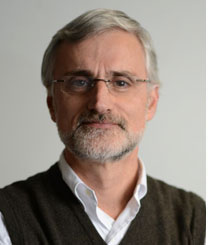
Dr. Vittorio Michelassi
Baker Hughes General Electric, Italy
Keynote abstract - Improving Gas Turbine Technology with Improved Design Tools: Virtual Testing: Turbomachines are still required for the efficient conversion of renewable, chemical or potential energy into propulsion, mechanical power, or electricity for years to come. The increasing demand for efficiency, availability, reduced footprint and cost of ownership poses fundamental challenges to design methods the accuracy of which needs to be constantly upgraded to keep the pace with the new design requirements, the availability of new materials, type of fluids and fuels, manufacturing methods and technologies. Therefore, designers are often asked to abandon their comfort zone as the operational requirements of gas turbines change in an energy marked increasingly dominated by renewables and less carbon intensive fuels. The presentation will focus on the design of gas turbine key components and recent trends in design verification methods. Thanks to the increased availability of computational power as well as the maturation of algorithms, it is possible to proceed with computer aided virtual testing as a risk mitigation activity prior to costly and time-consuming physical testing. Design methods can take advantage of both artificial intelligence and high-fidelity simulations techniques that guide the design process by harvesting design data from multiple sources and improve the accuracy of design verification respectively. Examples are given in the area of aero, aero-thermal, and aero-mechanical design. In the coming future, the concerted use of machine learning and high-fidelity methods may allow to conduct reliable virtual tests in the framework of design loops to cut down design time, risk and reduce design margins.
Bio: Prof. Dr. Vittorio Michelassi (VM) is Chief Consulting Engineer at Baker-Hughes. In his role he overlooks the aero-thermal design of gas turbine components as well as the improvement of design tools for energy conversion related activities. Prior to joining Baker-Hughes, VM worked in General Electric Global-Research as aero-thermal technologies Chief Engineer supporting GE Aircraft Engines. From 2003 till 2009 VM was principal engineer and Manager Aero Design of General Electric Oil & Gas. Before 2003 VM was Professor of Gas Dynamics and Turbomachinery Aerodynamics at the Universities of Firenze and Roma Tre, Italy. He received a master in engineering from University of Florence, Italy, and a Master in Fluid Dynamics from the Von Karman Institute for Fluid Dynamics, Rhode Saint Genese, Belgium. He received his PhD from the University of Florence after having conducted research at NASA Lewis Research Centre and Karlsruhe Institute of Technology. VM was visiting scientist at NASA Lewis, at the Center for Turbulence Research in Stanford, at Karlsruhe Institute of Technology. He participated several EU-granted research consortiums with focus on turbomachinery and combustions where he gained a wide experience in internal aerodynamics, with focus on unsteady aerodynamics. He worked in turbulence modelling applied to steady and unsteady Reynolds Averaged Navier-Stokes simulations, as well as Large Eddy and Direct Numerical Simulations, where he pioneered the industrial application of high-fidelity CFD and Machine Learning as a design investigation tool in cooperation with Academia and US National Laboratories. He is a member of ASME Turbomachinery Committee and serves as a reviewer for International Journals. VM authored and co-authored several journal and conference papers in the area of turbomachinery design and aerodynamics.
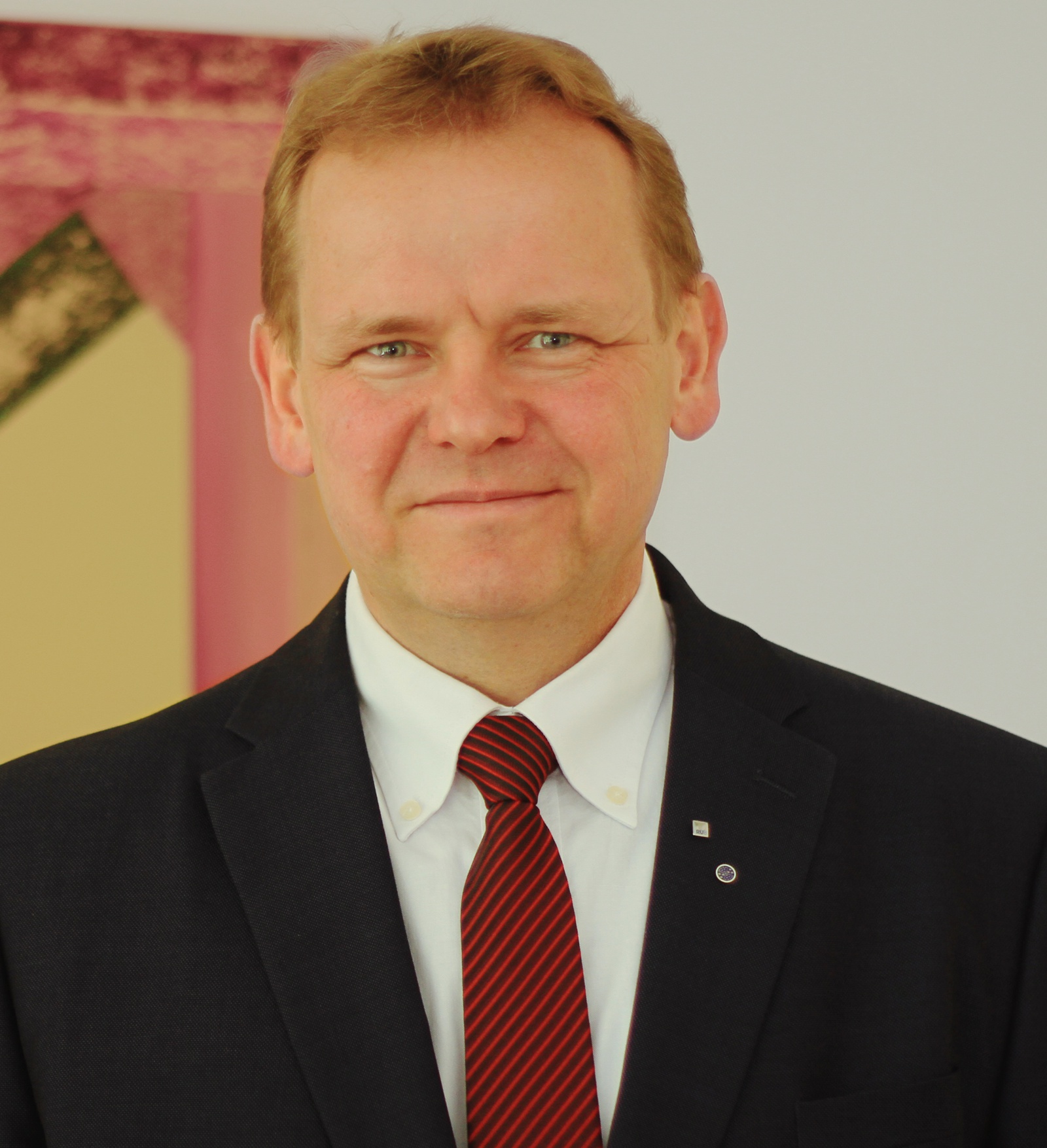
Prof. Dr.-Ing. Roland Span
Ruhr-Universität Bochum, Germany
Keynote abstract - Equations of State for CO2 and CO2-rich Mixtures – What is Relevant for Non-Ideal Compressible-Fluid Dynamics?
When talking about accurate equations of state nowadays, technicians and scientists usually refer to empirical or semiempirical fundamental equations of state in terms of the Helmholtz energy. Numerical tools like REFPROP, COOLPROP, or TREND made these complex property models widely used commodities. However, these equations of state are still numerically demanding – usually too demanding for direct use in CFD applications. So, why do we use formulations in terms of temperature and density, which require iterative solutions in essentially each calculation, instead of formulations in terms of temperature and pressure? Why did we develop a numerically particularly demanding equation of state as reference equation of state for CO2 in the 1990s? And are users really aware of the potential Helmholtz equations of state offer for calculations in fluid dynamics?
While the reference equation of state for pure CO2 has not changed for more than 20 years now, a closely related area of thermodynamic property research is constantly evolving: The work on CO2-rich mixtures. Largely driven by aspects of CO2 capture, transport, and storage, this work considers minor components usually as impurities, which are only accepted because it is too costly to remove them. Based on recent mixture models, it can be shown that even small amounts of impurities can have large effects on thermodynamic properties, and in particular on phase boundaries. However, an addition of minor components may also be used to modify properties of the working fluid CO2 in a way that improves the performance of a specific process. Are recent mixture models accurate enough to predict the effect of minor components in CO2-rich mixtures and are they able to deliver all properties, which are required for calculations in non-ideal compressible-fluid dynamics?
The presentation will address questions like those formulated above from the perspective of a scientist working on properties of CO2 and CO2-rich mixtures for more than 30 years now – with a sound understanding of property models, but with little knowledge on actual problems related to calculations in non-ideal compressible-fluid dynamics. Hopefully the presentation will serve as basis for a lively discussion.
Bio: Roland Span studied mechanical engineering at Ruhr‐University Bochum (RUB) from 1983 to 1988. In 1992, he completed his Ph.D. with a thesis introducing a new reference equation of state for carbon dioxide, which is since then considered the international standard for thermodynamic properties of carbon dioxide. His work was supervised by Prof. W. Wagner. In 1999, he completed his habilitation with a thesis entitled “Multiparameter Equations of State – An Accurate Source of Thermodynamic Property Data”. At ALSTOM Power Technologies in Switzerland, he worked on gas‐turbine related topics, including humidified gas‐turbines and CCS. In 2002, he became chair of Thermodynamics and Energy Technologies at University of Paderborn. In 2006, he changed to RUB, where he is chair of Thermodynamics, leading an institute with about 15 scientific coworkers and 15 student co‐workers. Prof. Span has published numerous journal articles and monographs, including highly cited scientific papers dealing mostly with experimental and theoretical work on thermodynamic properties and the application of corresponding models to process simulations in energy technologies. Prof. Span and his scientific coworkers received several national and international awards; the most recent one was the NTNU & SINTEF CCS Award 2019. He is member of several scientific committees, including editorial boards, advisory boards in energy technology, and working groups of international unions. In the management board of the JP CCS of the European Energy Research Alliance, Prof. Span is responsible for CO2 transport. He is speaker of the Research Department Closed Carbon Cycle Economy (RD CCCE) at RUB and of the doctoral school DS CCCE. He is member of the European Academy of Sciences and Arts and curator of the Fraunhofer UMSICHT institute.
